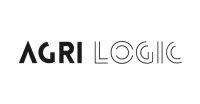Via its Global Coffee Platform (GCP), the IDH Sustainable Trade Initiative seeks to make a significant impact on the global coffee sector. Africa features heavily in it’s strategy as an under-utilized source of significant new coffee volumes to meet growing demand. Ironically, much of the coffee and sustainability investments over the past 10-15 years have taken place in Latin America and Asia. Africa has just 4% of global certified sustainable supply (against around 10% of total supply), yet the needs for investment in coffee on the continent are arguably greater than elsewhere.
Agri-Logic was asked to conduct in-depth coffee sector studies for 9 African origins: Angola, Burundi, Cameroon, Ethiopia, Ivory Coast, Kenya, Rwanda, Tanzania and Uganda. These studies are used to develop the GCP’s African investment strategy, and feed into the establishment of an African Coffee Facility by the African Development Bank (AfDB) and the Inter-African Coffee Association (IACO). Investment opportunities in each origin are investigated, including modelling of their impact and return on investment at different levels of the value chain.
We developed a dynamic sector model allowing to analyze large volumes of data from different sources. This model is fed by a structured database and allows insight into a sector’s performance compared to user-defined global benchmark origins. The study has been presented at the Africa Coffee Facility inception meeting in Abidjan to a public of regional coffee sector representatives and staff of IACO and the AfDB, as well as during the Global Coffee Platform workshop in Addis Ababa.




